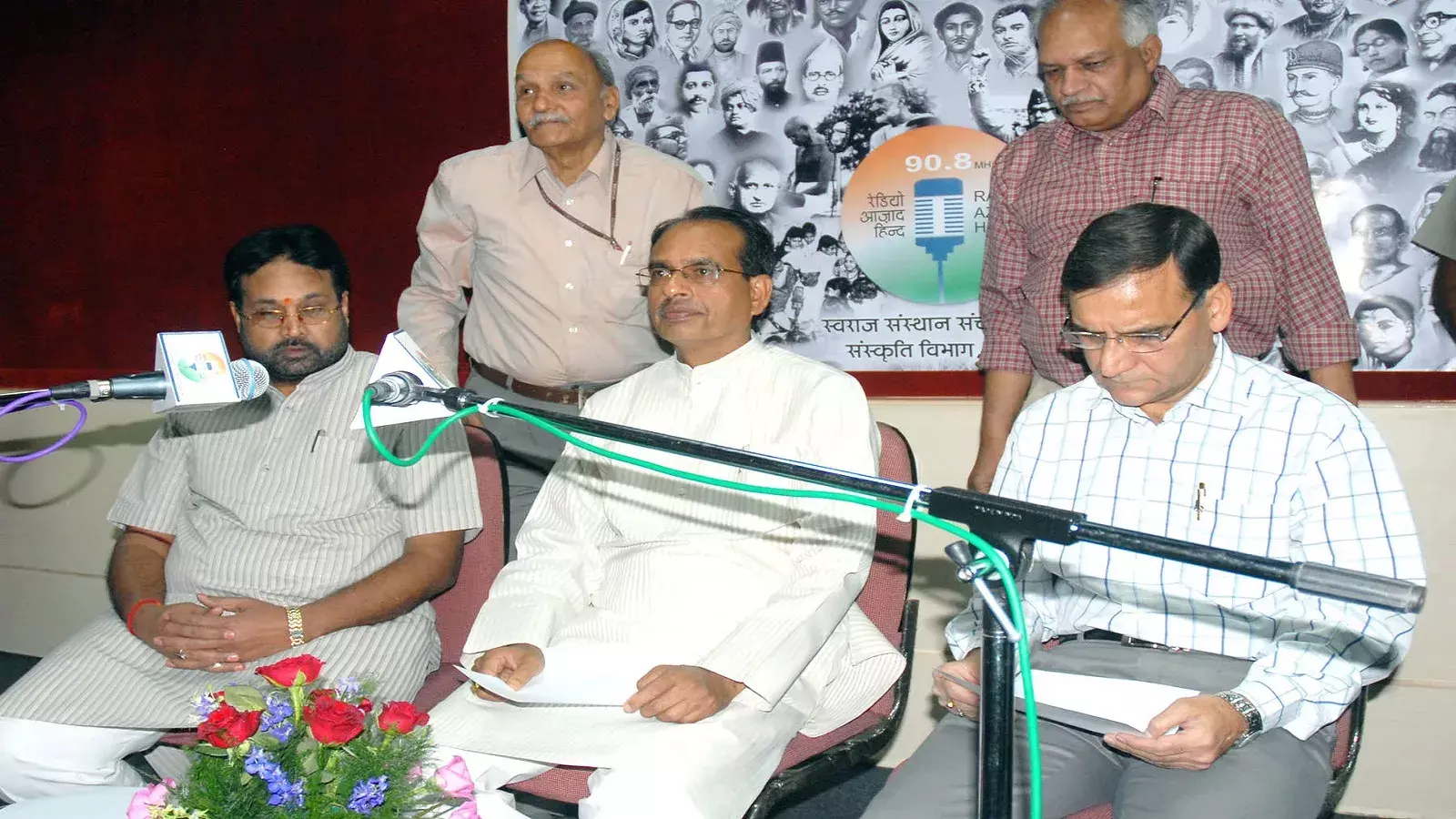Does Madhya Pradesh Have The Highest Incidences of Rape? A FactCheck
Although Madhya Pradesh is preceded by two other states in terms of rape yet there is a lot at the hindsight.

Taken from Flickr Photos
Recently, Sitaram Yechury, the General Secretary of CPI claimed on Twitter that Madhya Pradesh has the highest cases of rape in India. This claim was made by Yechury against an announcement made by Shivraj Singh Chouhan, Chief Minister of Madhya Pradesh while he inaugurated an awareness programme called 'Samman', on crime against women in Bhopal.
Data Contradicts?
However, as per the National Crime Records Bureau 2019 statistics, Rajasthan has recorded the highest cases of rape which stands at 6051, followed by Uttar Pradesh (3131) and Madhya Pradesh (2485) which makes Madhya Pradesh third highest in this regard. A break-up of the NCRB 2019 would show that in 2019, the incidences of rape in Madhya Pradesh stands at 2485 as against the number of victims which is 2490. Also, the crime rate when it comes to rape stands at 6.2% for 2019. Similarly, for Rajasthan, the incidences (5997) and victims (6051) of rape for the same year shows a crime rate of 15.9% and for Uttar Pradesh the incidences (3065), victims (3131), the crime rate stands at 2.8% respectively.
What is the Reality? Expert Speaks
While Yechury's claim is not completely true when we look at data, the state government's solution to protect women and prevent instances of rape have also been criticised. Experts have pointed out that Chief Minister Shivraj Chouhan's declaration on installation of a system where a woman moving out of home for work would have to register herself at the police station in order to track her and keep her safe, certainly infringes the right to liberty and privacy of women in the state. A group of women activists staged a protest near the Madhya Pradesh Bhawan in New Delhi to protest against the infringement of rights and freedom of women in the garb of their safety. The activists even said "the surveillance proposal is just to divert from the governance failure in the state."
In Gendering Surveillance, a Internet Democracy Project, the report talks on how in a digital age the system of surveillance has to be thought through the lens of gender in developing countries like India. Data surveillance has gained a wider ground because of the common notion that "if you have got nothing to hide, you have got nothing to fear." The whole idea of surveillance on women for their safety is in turn encroaching on their privacy and rights is what the Project tries to explain.
Rolly Shivare, a human rights activist working with National Campaign for People's Right to Information from Bhopal said that the move if implemented will definitely curtail the rights and privacy of women but she added, "We need to understand exactly what the Minister is trying to say. When some of the activists were protesting against such a system in Delhi, we thought the government wants to control and keep the lives of women in track. But later on, the Ministry put up a clarification that whatever he wanted to convey has been misinterpreted. So what the ministry is actually going to undertake is not too clear yet."
However, Rolly Shivare also points out that as far as rape cases are concerned, they deal with such cases of gender-based violence on a daily basis in Madhya Pradesh. In the past 3-4 months, the cases of rape committed on girls below 18 years of age has been rampant and there has not been a single day when they have not come across cases of rape or gender-based violence in the state of Madhya Pradesh. But at times the cases are not reported well.
For instance, during the period of lockdown, rape cases that have been reported were minimal and one reason for that could have been that the police personnel were busy in locking down people at home and were barely in the police station. So, no one actually approached or went to the police station even if such cases of rape and other kinds of violence happened around that time. Secondly, she added, rape cases in different neighbourhood and localities of the state were under-reported because people stayed indoors and preferred to keep silent.
Chouhan had even said, "Incidents of rape have reduced by 19% in the state, kidnapping by 23%, female foeticide by 20% and sexual harassment by 14%." However, in this regard, Shivare concluded by saying that statistically Madhya Pradesh might be a little better-off than Uttar Pradesh or Rajasthan yet the state of affairs with respect to child-protection and gender-based violence is dismal.


